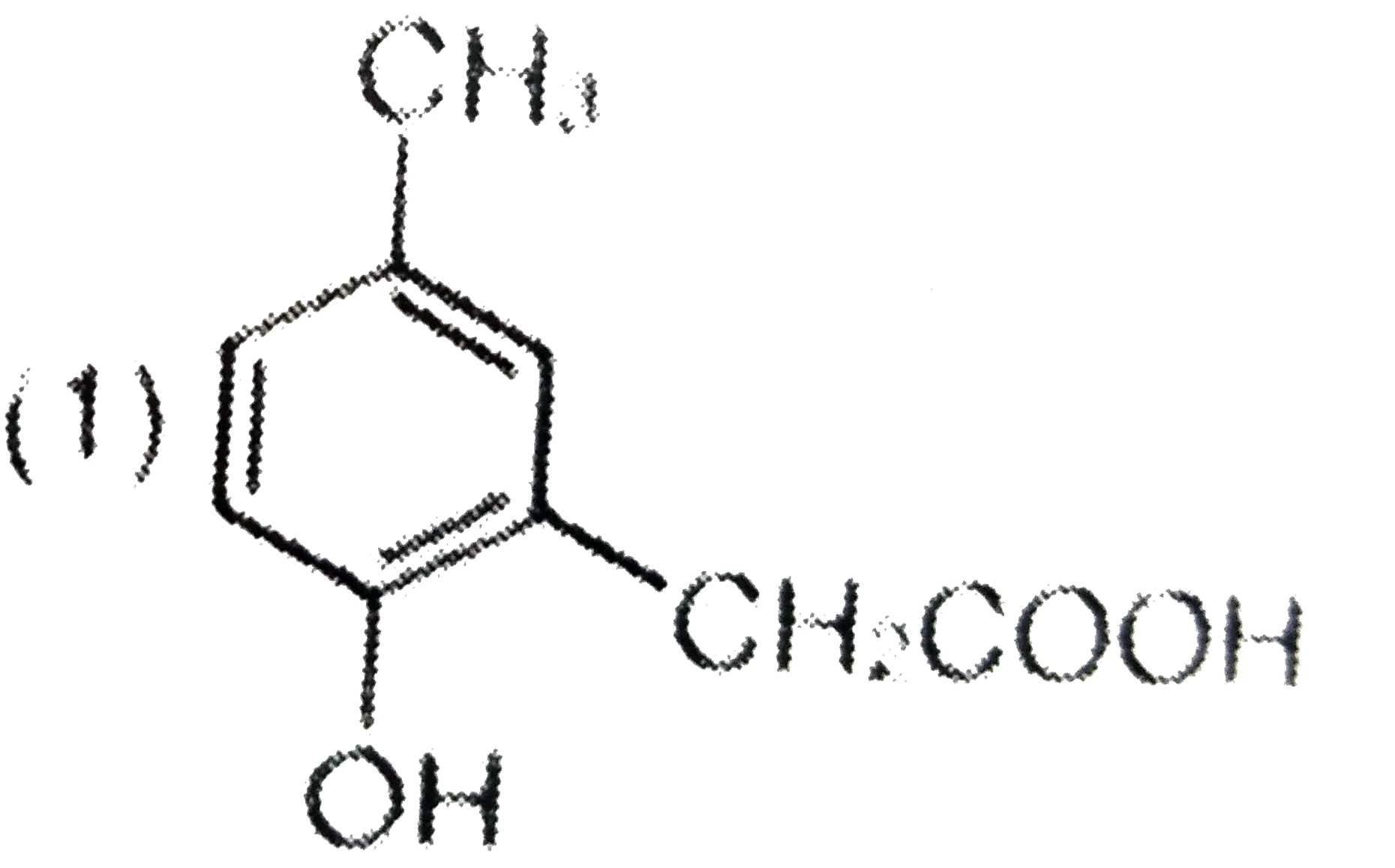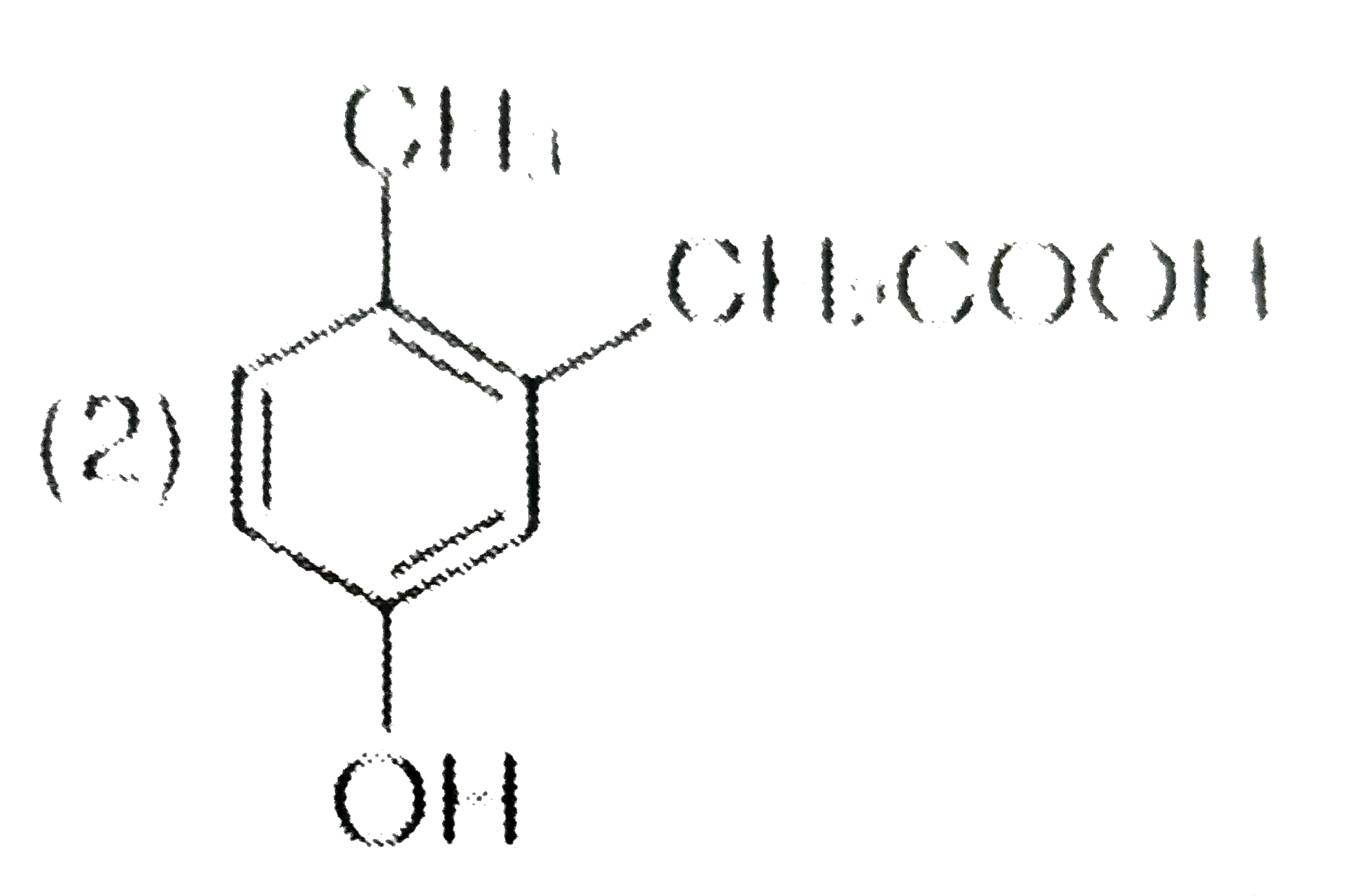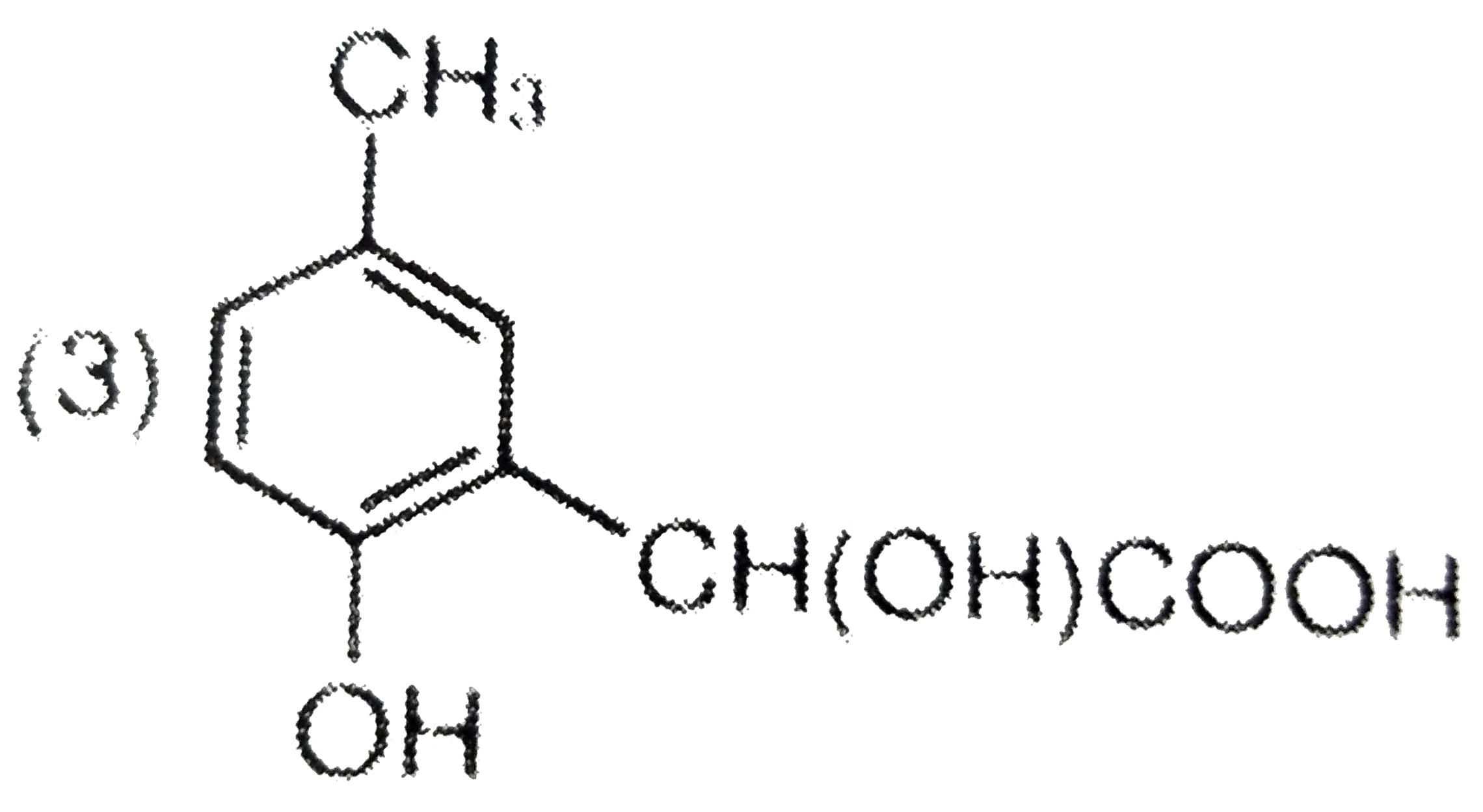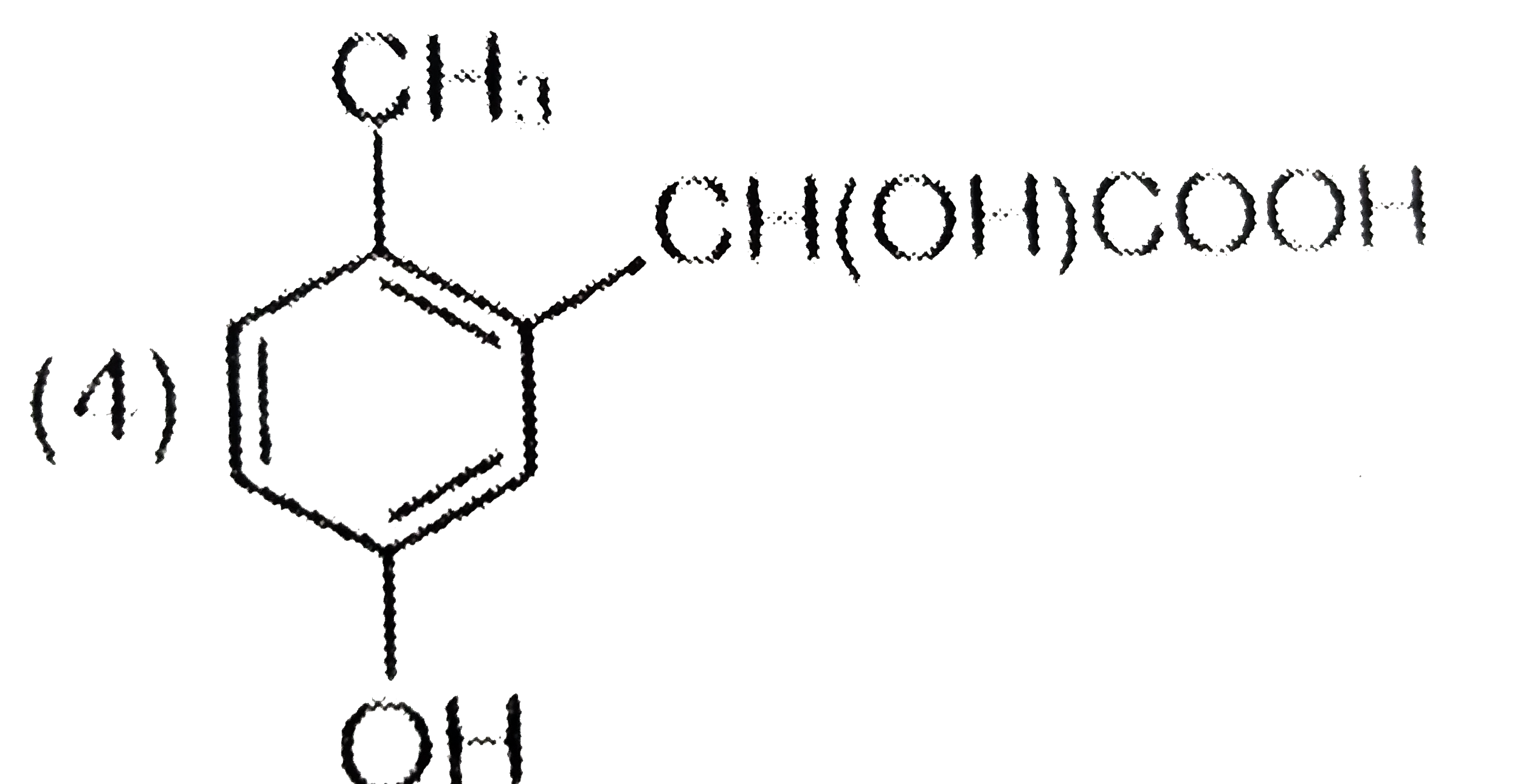Acctamide reacts with NaOBr in alkaline medium to form:
NH3
CH3NH2
CH3CN
CH3CH2NH2
The correct Answer is:B
To solve the problem of what acetamide reacts with NaOBr in an alkaline medium to form, we will follow these steps:
Step 1: Identify the Reactants
The reactants in this reaction are acetamide (CH3C(=O)NH2) and sodium hypobromite (NaOBr) in an alkaline medium.
Step 2: Understand the Reaction Type
This reaction is a type of degradation reaction known as the Hofmann degradation or Hofmann bromamide reaction. In this reaction, primary amides are converted into primary amines.
Step 3: Write the Structure of Acetamide
Acetamide can be represented as:
CH3C(=O)NH2
Step 4: Reaction with NaOBr
When acetamide reacts with NaOBr in an alkaline medium, the carbonyl group (C=O) is converted to a primary amine. The reaction can be summarized as follows:
CH3C(=O)NH2+NaOBr→CH3NH2+by-products
Step 5: Identify the Product
The product formed from the reaction is methylamine (CH3NH2). The carbonyl group is removed, resulting in the formation of the amine.
Conclusion
Thus, the final product of the reaction of acetamide with NaOBr in alkaline medium is methylamine (CH3NH2).
Final Answer
The product formed is methylamine (CH3NH2).
---
The reactants in this reaction are acetamide (CH3C(=O)NH2) and sodium hypobromite (NaOBr) in an alkaline medium.
This reaction is a type of degradation reaction known as the Hofmann degradation or Hofmann bromamide reaction. In this reaction, primary amides are converted into primary amines.
Acetamide can be represented as:
CH3C(=O)NH2
When acetamide reacts with NaOBr in an alkaline medium, the carbonyl group (C=O) is converted to a primary amine. The reaction can be summarized as follows:
CH3C(=O)NH2+NaOBr→CH3NH2+by-products
The product formed from the reaction is methylamine (CH3NH2). The carbonyl group is removed, resulting in the formation of the amine.
Thus, the final product of the reaction of acetamide with NaOBr in alkaline medium is methylamine (CH3NH2).
The product formed is methylamine (CH3NH2).
Topper's Solved these Questions
- ORGANIC COMPOUNDS CONTAINING NITROGENBook:OP TANDONChapter:ORGANIC COMPOUNDS CONTAINING NITROGENExercise:STEP I:
Explore 22 Videos
- ORGANIC COMPOUNDS CONTAINING NITROGENBook:OP TANDONChapter:ORGANIC COMPOUNDS CONTAINING NITROGENExercise:STEP II:
Explore 20 Videos
- ORGANIC COMPOUNDS CONTAINING NITROGENBook:OP TANDONChapter:ORGANIC COMPOUNDS CONTAINING NITROGENExercise:BRAIN STROMING
Explore 12 Videos
- ISOMERISM (STRUCTURAL AND STEROISOMERISM)Book:OP TANDONChapter:ISOMERISM (STRUCTURAL AND STEROISOMERISM)Exercise:INTEGER
Explore 7 Videos
- RADIOACTIVITY AND NUCLEAR TRANSFORMATION Book:OP TANDONChapter:RADIOACTIVITY AND NUCLEAR TRANSFORMATION Exercise:SECTION - VI
Explore 3 Videos
Similar Questions
Write the balanced chemical equations for the following
(i) Silver chloride is treated with aqueous sodium cyanide and the product thus formed is allowed to reacts with zinc in alkaline medium.
(ii) Cobalt (II) solution reacts with KNO20 in acetic acid medium.
View Solutionp-cresol reacts with chloroform in alkaline medium to give the compound A which adds hydrogen cyanide to form, the compound B. the latter on acidic hydrolysis gives chiral caboxylic acid. The structure of the carboxylic acid is
View Solution
Knowledge Check
In alkaline medium fructose is -
AAn aldoseBA reducing sugarCA non reducing sugarDA furanosep-cresol reacts with chloroform in alkaline medium to give the compound A which adds hydrogen cyanide to form, the compound B. the latter on acedic hydrolysis gives chiral caboxylic acid. The structure of the carboxylic acid is
A B
B C
C D
D
p-cresol reacts with chloroform in alkaline medium to give the compound A which adds hydrogen cyanide to form, the 29. compound B. The latter on acidic hydrolysis gives chiral carboxylic acid. The structure of the carboxylic acid is
A B
B C
C D
D
p-cresol reacts with chloroform in alkaline medium to give the compound A which adds hydrogen cyanide to form, the compound B. the latter on acidic hydrolysis gives chiral caboxylic acid. The structure of the carboxylic acid is
View Solutionp-Cresol reacts with chloroform in alkaline medium to give the compound X which adds hydrogen cyanide to form, the compound Y. The latter on acidic hydrolysis gives chiral carboxylic acid. The structure of the carboxylic acid is
View SolutionP- cresol react with chloroform in alkaline medium to give compound (A) which adds HCN to form (B). The latter on acidic hydrolysis given chiral carboxylie acid. The structure of carboxylic acid is :
View Solutionp-Cresol reacts with chloroform in alkaline medium to give compound (A) which add hydrogen cyanide to form compound (B). The latter on acidic hydrolysis gives chiral carboxylic acid. The acid is
View SolutionWhen acetamide is treated with NaOBr, the product formed is
View Solution
